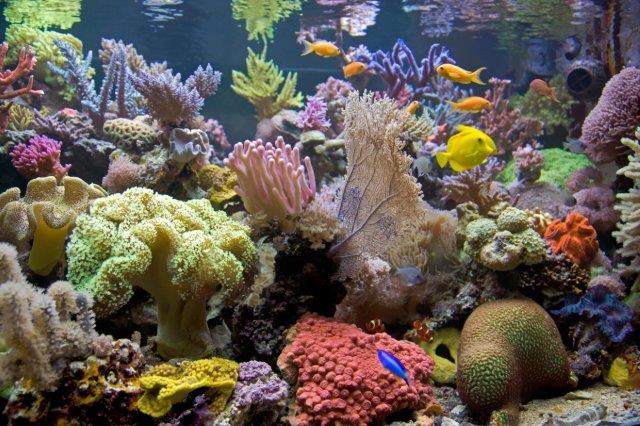FOR IMMEDIATE RELEASE
ACS News Service Weekly PressPac: January 13, 2016
Toxins related to ‘red tides’ found in home aquarium
"Determination of Palytoxins in Soft Coral and Seawater from a Home Aquarium. Comparison between Palythoa- and Ostreopsis-Related Inhalatory Poisonings"
Environmental Science & Technology
Many shore residents and beach-goers are already familiar with the health risks of “red tide,” algal blooms along coastlines that can trigger respiratory illness and other effects in people who inhale the toxins the algae release. Now in ACS’ journal Environmental Science & Technology, scientists report new evidence that similar effects can occur on a much smaller scale among home aquaria owners.
Raising brightly colored tropical fish and coral in a home aquarium is like displaying a living work of art. But unlike art, aquaria are dynamic mini-ecosystems, and some can even release harmful toxins very similar to those that algal blooms release. Some owners have reported fevers, difficulty breathing, flu-like symptoms and other health problems after using hot water to clean their aquaria. Hot water on rocks that harbor algae and other critters creates steam that can then be inhaled. But there is little scientific evidence to shore up the link between aquaria and negative health effects. Carmela Dell'Aversano and colleagues wanted to explore the potential connection.
The researchers developed a method to rapidly test aquaria for toxins. They used their procedure to sample the soft coral and synthetic seawater from a home system when a family of four in the Netherlands fell ill and ended up in the hospital 45 minutes after cleaning their aquarium. The samples had high levels of palytoxins, which are among the most potent non-protein marine toxins known and a possible cause of red-tide health effects. Although the results don’t prove cause and effect, the researchers say their findings provide further support for the association.
The authors acknowledge funding from UniNA, Compagnia di San Paolo and Regione Campania.


